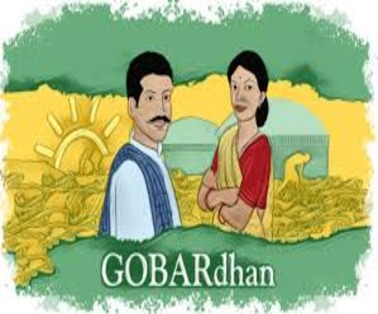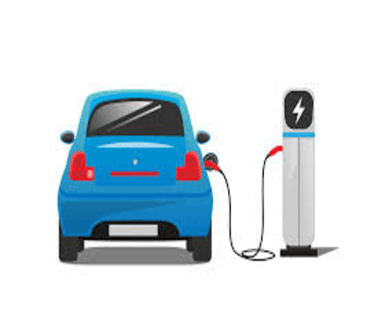The GOBARdhan Scheme (Galvanizing Organic Bio-Agro Resources Dhan) in India, aimed at converting waste to wealth through biogas and compressed biogas (CBG), has shown promising results and attracted significant investments.
Key Highlights of GOBARdhan Scheme
- The Unified Registration Portal for GOBARdhan (Galvanizing Organic Bio-Agro Resources Dhan), developed by Department of Drinking Water and Sanitation is witnessing laudable enthusiasm from States/UTs and CBG/Biogas operators/ investors.
- The portal was launched for streamlining the process of registration of functional/under construction /yet to start Biogas/Compressed Biogas (CBG) plants across the country.
- It can be inferred that CBG/Biogas industry has started flourishing and will play a tremendous role in the energy mix of India’s renewable energy portfolio.
- In a short span of just 60 days, over 1200 plants including 320 CBG plants and 892 Biogas plants, spread across the length and breadth of the country, covering as many as 450 districts have been registered on the portal.
- 52 Commissioned CBG plants registered on the portal have the capacity to process more than 6600 Tonne Per Day (TPD) of organic/agri residue to produce more than 300 TPD of CBG and more than 2000 TPD of Fermented Organic Manure (FOM).
What is the GOBARdhan Scheme?
- Galvanising Organic Bio-Agro Resources-Dhan (GOBAR-Dhan) is a scheme Under which Cattle dung, kitchen waste and agricultural waste can be tapped to create biogas-based energy
- It is to convert cattle dung and other organic waste to compost, biogas and even larger scale bio-CNG units.
- GOBARdhan initiative has been undertaken with the objective of scientific management of organic/biodegradable waste while also providing resource and monetary benefits to rural households.
- The initiative is a convergence of interest and efforts of Government of India, State Governments, private players and other stakeholders.
- In 2018, the government launched this scheme as a national priority project under the Swachh Bharat Mission Grameen-Phase II program.
- Department of Drinking Water and Sanitation supports every district with technical assistance and financial support of up to Rs. 50 lakh per district to achieve safe management of cattle and biodegradable waste, help villages convert their waste into wealth, improve environmental sanitation and curb vector-borne diseases
Objectives of Galvanizing Organic Bio-Agro Resources Dhan Scheme

Models of the GOBARdhan Scheme
Individual Household: This model can be adopted by households which have three (3) or more cattles. The biogas and slurry generated from the plants are used for cooking and as manure by the households.
Community: The Biogas plants can be constructed for a minimum number of households (5 to 10). The plants can be operated and managed by GP/SHGs. The gas generated will be supplied to households/restaurants / institutions and slurry can be used by the community as organic manure in agriculture or sold to farmers.
Cluster: In this model, individual Biogas plants are installed in number of households in a village/ group of villages. The biogas generated is used by the households and the slurry is collected at a common place, separated to solid and liquid parts and then fortified and sold as biofertilizers.
Commercial CBG: CBG plants can be set up by Entrepreneurs / Cooperative Societies/ Gaushalas etc. The raw biogas produced is compressed and can be used as vehicular fuel and / or sold to industries. The slurry generated is converted into organic manure / bio-fertilizer and can be sold to farmers.
Key Benefits of the GOBARdhan Scheme
- Helps manage the major solid waste in villages and promotes environmental sanitation
- Substantially reduces the incidence of vector-borne diseases and promotes public health
- Promotes employment and income generation opportunities for SHGs/ farmers groups
- Helps generate organic manure, which boosts agriculture and farm producvity
- Promotes household income and savings as the use of biogas as fuel will cut down the LPG cost
To Download Monthly Current Affairs PDF Click here
Get Inspiration from CLAT 2025 Topper
Click here to get a free demo
Everything About CLAT 2025



